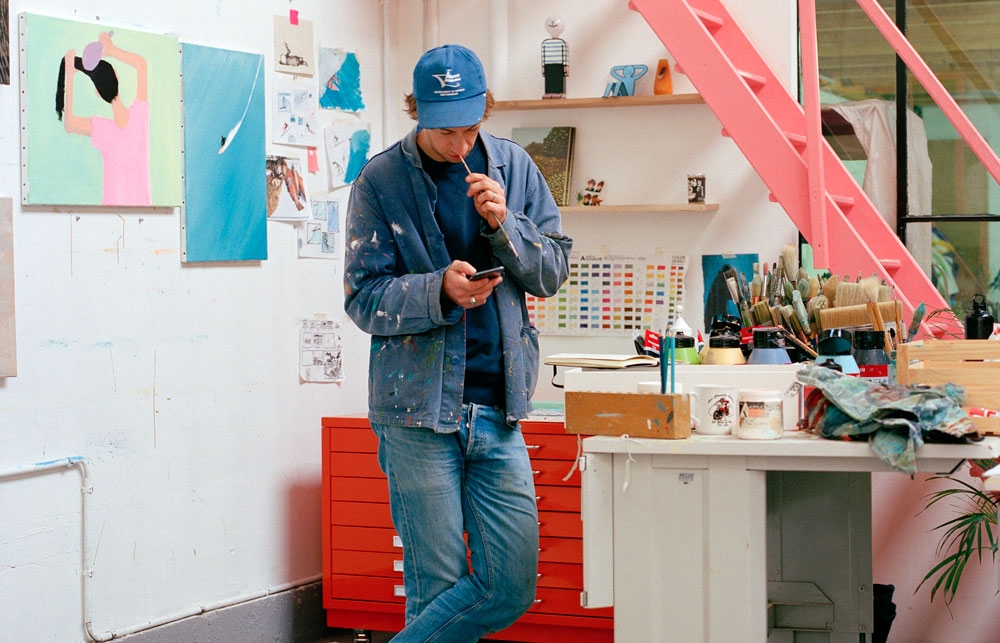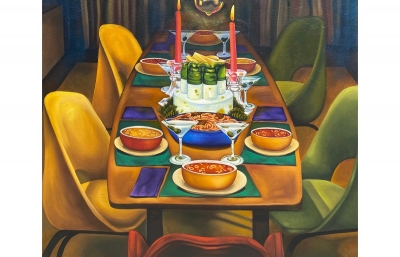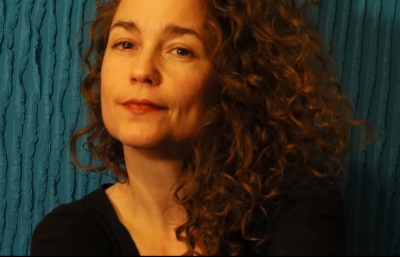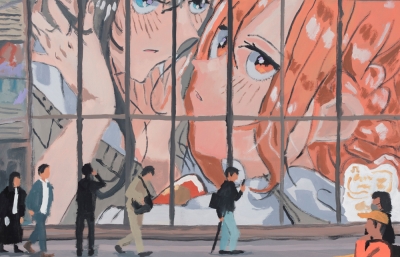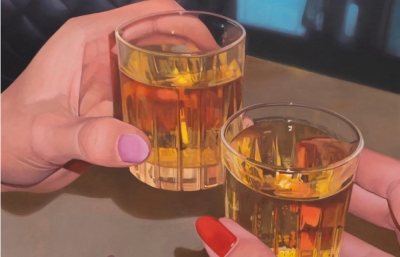Do you think that last year was the first time you really got to do the big immersive stuff the way that you had always thought you were going to do it? The shows in Seoul and the MIMA Museum in Brussels both felt like you were hitting the target with what you have always wanted to do. It seemed like 2023 was a great year.
Yeah, totally. I see them as a trilogy, though. The show in Seoul was the first chapter, which was about where I came from and where I am now. The show at the MIMA is where I'm at in my life and career now. And then the next show, which will be with NANZUKA and their new museum in Shanghai, will be where we are going. But I feel like, to answer your question, yes, that was the first time I did something properly on this scale where I could drive a narrative.
You have always focused on the little moments in life. They're universal moments, and you're a really good observationist and really pay attention to small stories in life. Now that I know it's a trilogy—this three-part series of massively immersive shows—how do you make sure that your keen eye stays true when you do something big like that? How do you keep something universal that is also so personal? And is that hard?
I don't actually think about it. It's not a conscious effort. The first show in Seoul gathered a lot of stuff that had been validated by an audience. It was work I already had been given feedback on with people over the years—works that were those funny, everyday cartoons and sketchbooks—all of that. At the show at the MIMA, I decided to do something that I knew was very self-indulgent, but with a lot of sincerity. It was more about sharing my thoughts and questions. And then, I sort of found that it's not that indulgent because I know that I live and evolve within a society of many, and I'm just one of the many, so I know the potentiality and almost certainty that some of these questions will echo with the audience. We see and experience the same things in different ways, but we are part of the same context.
The next chapter of the trilogy will be about escapism. I think that the reason I'm angling towards that is that I find myself to be more and more anxious: eco-anxious, anxious about war, the pandemic, and all of that stuff. And I want to reflect on our consumption of media and how certain forms of media are now part of our everyday lives, part of our paradigm, and how that's a problem. It's difficult to articulate because, at the same time, I know that I'm not going to do something that vilifies media because, one, it's something that's part of the fabric of where and how we live, and it's also extremely useful for many things. There are many positives. But then I'm going to try to draw the outline of what I see as a solution, but on a personal level. And I know it is also a solution for a lot of people, which is escapism, role-playing games, video games, fiction, drama, all of that stuff. And then what's good about that? What's not good about that? So as always, I think it will be poking and questioning more than affirming anything.









